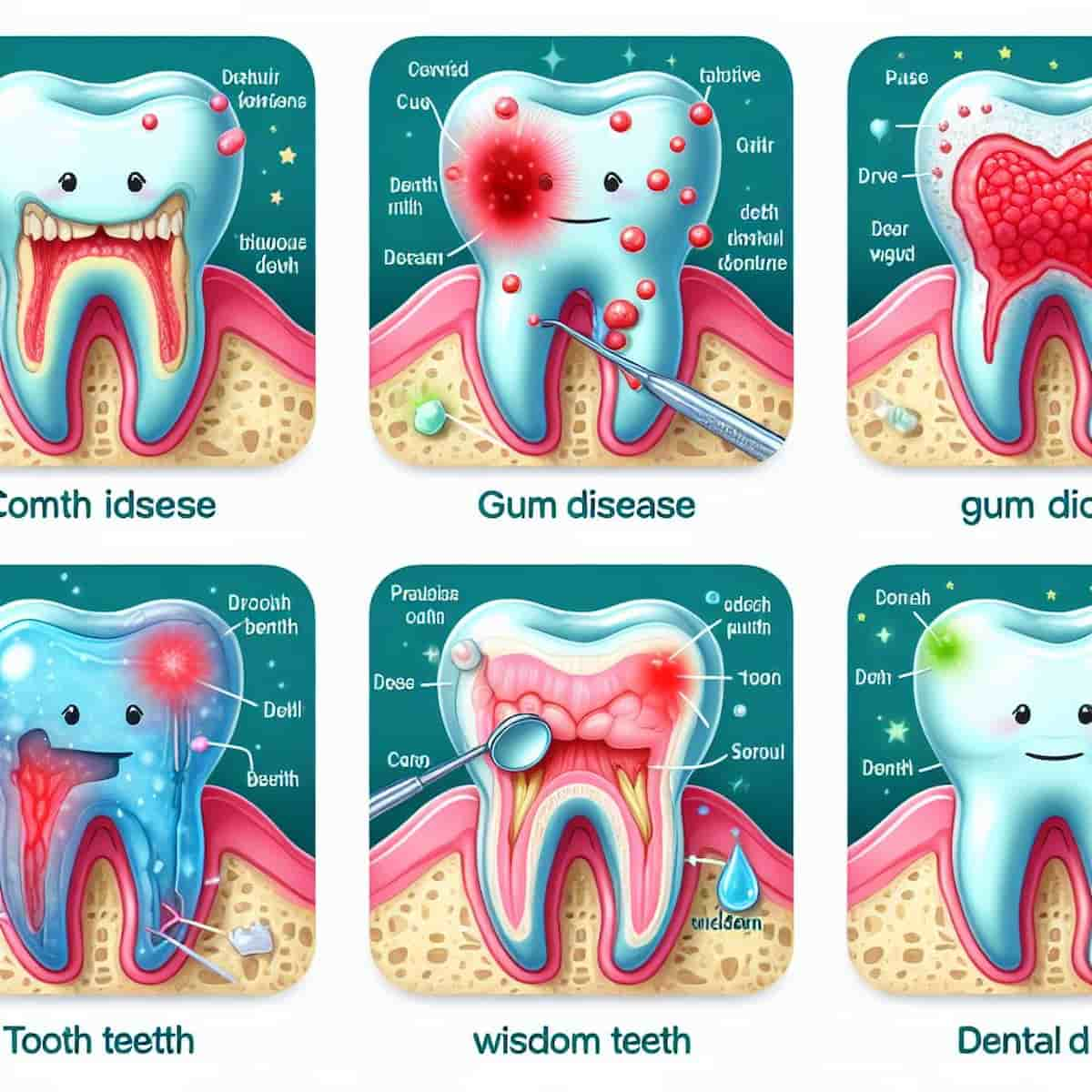Gum inflammation, also known as gingivitis, is a common oral health issue characterized by red, swollen gums that may bleed easily. Understanding the causes, recognizing symptoms, and exploring effective remedies are essential for managing gum inflammation and maintaining optimal oral hygiene. Let’s delve into the details:
Key Takeaways:
- Gum inflammation typically arises from the buildup of plaque—a sticky film of bacteria—along the gumline, leading to irritation and infection.
- Symptoms of gum inflammation include redness, swelling, tenderness, bleeding gums, and bad breath.
- Remedies for gum inflammation focus on improving oral hygiene, reducing plaque buildup, and seeking professional dental care when necessary.
Causes of Gum Inflammation:
Gum inflammation is primarily caused by poor oral hygiene habits that allow plaque to accumulate along the gumline. Common causes include:
- Plaque Buildup: Inadequate brushing and flossing lead to the accumulation of plaque, which contains harmful bacteria that irritate the gums.
- Tartar Formation: If plaque is not removed promptly, it hardens into tartar (calculus), further irritating the gums and contributing to inflammation.
- Smoking: Tobacco use weakens the immune system and increases the risk of gum inflammation and periodontal disease.
- Certain Medications: Some medications, such as anticonvulsants and immunosuppressants, may increase the risk of gum inflammation.
- Hormonal Changes: Hormonal fluctuations during puberty, pregnancy, and menopause can make gums more susceptible to inflammation.
- Medical Conditions: Systemic conditions like diabetes and autoimmune diseases can affect gum health and increase the risk of inflammation.
Symptoms of Gum Inflammation:
Symptoms of gum inflammation may vary in severity but commonly include:
- Redness and Swelling: Gums appear red, swollen, and inflamed, particularly along the gumline.
- Tenderness: Gums feel tender to the touch and may be sensitive when brushing or flossing.
- Bleeding Gums: Gums may bleed easily, especially during brushing, flossing, or eating hard foods.
- Bad Breath: Persistent bad breath (halitosis) may accompany gum inflammation due to the presence of bacteria in plaque and tartar.
- Receding Gums: In advanced cases, gums may begin to recede, exposing the roots of the teeth and increasing sensitivity.
Remedies for Gum Inflammation:
Managing gum inflammation involves improving oral hygiene practices and reducing factors that contribute to plaque buildup:
- Good Oral Hygiene: Brush teeth at least twice a day with fluoride toothpaste and floss daily to remove plaque and prevent gum inflammation.
- Proper Brushing Technique: Use a soft-bristled toothbrush and gentle, circular motions to clean teeth and massage the gums without causing further irritation.
- Regular Dental Check-ups: Schedule dental exams every six months for professional cleanings and evaluation of gum health.
- Antimicrobial Mouthwash: Rinse with an antimicrobial mouthwash to reduce bacterial growth and inflammation.
- Quit Smoking: Quit smoking and avoid tobacco products to improve gum health and reduce the risk of inflammation.
- Healthy Diet: Eat a balanced diet rich in fruits, vegetables, and whole grains to support gum health and overall well-being.
- Stress Reduction: Practice stress-reduction techniques such as meditation or yoga, as stress can weaken the immune system and exacerbate gum inflammation.
Prevention of Gum Inflammation:
Preventing gum inflammation involves adopting good oral hygiene habits and making healthy lifestyle choices:
- Brush and Floss Regularly: Clean teeth twice daily with fluoride toothpaste and floss daily to remove plaque and prevent gum disease.
- Limit Sugary and Acidic Foods: Reduce consumption of sugary and acidic foods and drinks that contribute to plaque buildup and gum inflammation.
- Regular Dental Check-ups: Schedule dental exams every six months for professional cleanings and early detection of gum disease.
- Quit Smoking: Tobacco use increases the risk of gum inflammation and periodontal disease, so quit smoking to improve gum health.
- Manage Medical Conditions: Control underlying medical conditions such as diabetes, as uncontrolled diabetes can increase the risk of gum inflammation and infection.
In conclusion, gum inflammation is a common yet preventable condition that requires attention to oral hygiene and overall health. By understanding the causes, recognizing symptoms, and implementing preventive measures and remedies, you can reduce your risk of gum inflammation and maintain healthy gums and teeth for life. If you experience persistent or severe gum inflammation, consult your dentist for personalized advice and treatment options tailored to your needs.















